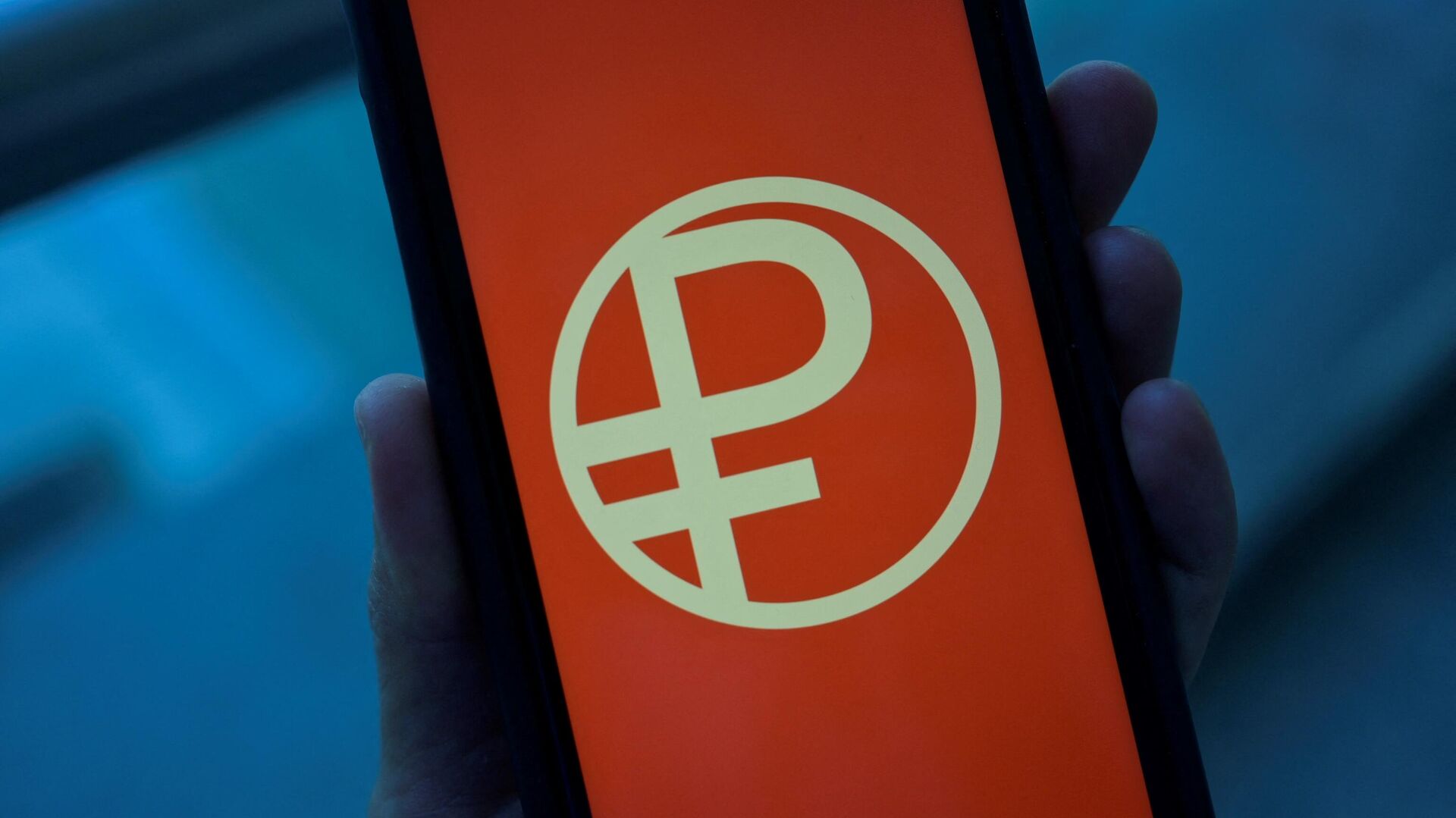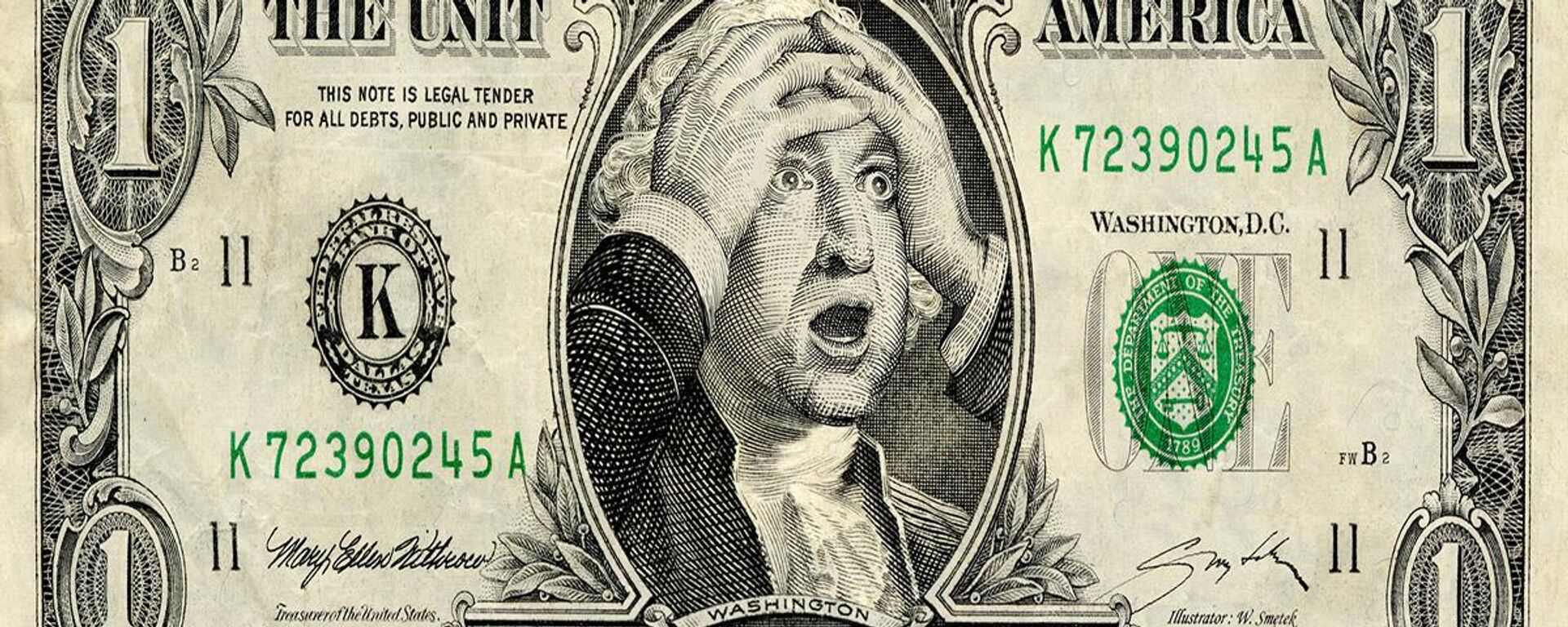https://sputniknews.in/20240313/dedollarisation-how-russias-new-law-on-digital-ruble-could-benefit-india-6821595.html
Dedollarisation: How Russia's New Law on Digital Ruble Could Benefit India
Dedollarisation: How Russia's New Law on Digital Ruble Could Benefit India
Sputnik India
Russian President Vladimir Putin this week signed a new law to allow the use of digital ruble and other digital assets in international transactions.
2024-03-13T18:35+0530
2024-03-13T18:35+0530
2024-03-13T18:35+0530
indo-russian relations
russia
india
new delhi
delhi university
reserve bank of india (rbi)
brics
vladimir putin
narendra modi
dedollarisation
https://cdn1.img.sputniknews.in/img/07e7/09/0f/4255508_0:159:3078:1890_1920x0_80_0_0_41ac02846af1242606b333d32e9589f0.jpg
Russia's new law allowing the use of digital ruble could help reduce the "challenges" associated with the Indian Rupee (INR)-Ruble trade, experts have told Sputnik India.Russian lawmakers have also stated that the digital trade could “partially mitigate the impact" of western sanctions.Both the e-rupee and digital ruble are regulated by the respective central banks, ensuring an element of security amid concerns over the use of cryptocurrencies.The Indian academic said that expanding the use of DPI assets could also help New Delhi achieve its goal of popularising the rupee globally, in line with the stated priorites of Prime Minister Narendra Modi.A key difference between India's domestic payments system Unified Payments Interface (UPI) and the e-rupee is that the former relies on individual banks to carry out transactions, while the digital rupee is solely regulated by the RBI.Digital Ruble to Help Intra-BRICS Trade, Academic SaysAnuradha Chenoy, the former dean of the School of International Studies (SIS) at New Delhi’s Jawaharal Nehru University (JNU), told Sputnik India that the new Russian law would help in further developing the trade relations between the nine BRICS nations.She noted ongoing efforts by BRICS nations to develop a multilateral trading system based on blockchain technology under Russia's ongoing BRICS presidency.Chenoy stated that an alternative to western financial architecture would benefit not only the BRICS nations, but the entire Global South.'Nervousness Around Digital Currency in BRICS Nations Should be Overcome'Chenoy said that there was still "nervousness" in countries like India on the use of CBDCs, much like the trend across the world.
https://sputniknews.in/20240229/india-shares-russias-de-dollarisation-goal-6705505.html
russia
india
new delhi
china
Sputnik India
feedback.hindi@sputniknews.com
+74956456601
MIA „Rossiya Segodnya“
2024
Dhairya Maheshwari
https://cdn1.img.sputniknews.in/img/07e6/0c/13/138962_0:0:641:640_100x100_80_0_0_2cb44360dbcdf6d84bf4b299cd045917.jpg
Dhairya Maheshwari
https://cdn1.img.sputniknews.in/img/07e6/0c/13/138962_0:0:641:640_100x100_80_0_0_2cb44360dbcdf6d84bf4b299cd045917.jpg
News
en_IN
Sputnik India
feedback.hindi@sputniknews.com
+74956456601
MIA „Rossiya Segodnya“
Sputnik India
feedback.hindi@sputniknews.com
+74956456601
MIA „Rossiya Segodnya“
Dhairya Maheshwari
https://cdn1.img.sputniknews.in/img/07e6/0c/13/138962_0:0:641:640_100x100_80_0_0_2cb44360dbcdf6d84bf4b299cd045917.jpg
digital ruble, rupee ruble trading, trade in national currencies, russia india relations, russian oil exports to india, russian oil exports, brics common currency, brics payments system, dedollarisation, dedollarisation news, brics dedollarisation, upi
digital ruble, rupee ruble trading, trade in national currencies, russia india relations, russian oil exports to india, russian oil exports, brics common currency, brics payments system, dedollarisation, dedollarisation news, brics dedollarisation, upi
Dedollarisation: How Russia's New Law on Digital Ruble Could Benefit India
Russian President Vladimir Putin this week signed a new law to allow the use of digital ruble and other digital assets in international transactions.
Russia's new law allowing the use of digital ruble could help reduce the "challenges" associated with the Indian Rupee (INR)-Ruble trade, experts have told Sputnik India.
"Due to the western sanctions, Russia accumulated large sums of Indian rupees in the vostro accounts in Indian banks and was unable to transfer them to Russia due to the banks being cut off from the SWIFT system. Expanding the digital transactions between our two countries could definitely help overcome this problem," reckoned Ashwani Mahajan, an economics' professor at Delhi University and the co-convenor of Swadeshi Jagran Manch (SJM).
Russian lawmakers have also stated that the digital trade could “partially mitigate the impact" of western sanctions.
Mahajan explained that New Delhi could use the opportunity to expand the presence of digital rupee, the Central Bank Digital Currency (CBDC) floated by the Reserve Bank of India (RBI) as part of a pilot project in December 2022. As of December 2023, the RBI revealed that over one million Indians were using the e-rupee.
Both the e-rupee and digital ruble are regulated by the respective central banks, ensuring an element of security amid concerns over the use of cryptocurrencies.
"We have always stood for the development of digital public infrastructure (DPI) assets, as reflected in our G20 presidency," Mahajan highlighted, noting that India witnessed the most number of digital transactions (UPI) in the world.
The Indian academic said that expanding the use of DPI assets could also help New Delhi achieve its
goal of popularising the rupee globally, in line with the stated priorites of Prime Minister Narendra Modi.
"Western institutions like SWIFT, which have controlled the global banking system, have proven to be a major hurdle in carrying out rupee trade. With increased use of digital payments, this hurdle could be overcome," Mahajan said.
A key difference between India's domestic payments system Unified Payments Interface (UPI) and the e-rupee is that the former relies on individual banks to carry out transactions, while the digital rupee is solely regulated by the RBI.
Digital Ruble to Help Intra-BRICS Trade, Academic Says
Anuradha Chenoy, the former dean of the School of International Studies (SIS) at New Delhi’s Jawaharal Nehru University (JNU), told Sputnik India that the new Russian law would help in further developing the trade relations between the nine BRICS nations.
She noted ongoing efforts by BRICS nations to
develop a multilateral trading system based on blockchain technology under Russia's ongoing BRICS presidency.
"However, a common digital payments framework as envisaged by BRICS has been taking time to put in place due to the security risks as well as due to the fact that e-currency still remains a relatively new concept in India and at many other places. Obviously, the hegemonic financial system doesn't want to be bypassed for the fear of losing out on the earnings incurred on transactions in other currencies," the academic explained.
Chenoy stated that an alternative to western financial architecture would benefit not only the BRICS nations, but the entire Global South.
"It would challenge the western hegemonic minority," Chenoy remarked.
'Nervousness Around Digital Currency in BRICS Nations Should be Overcome'
Chenoy said that there was still "nervousness" in countries like India on the use of CBDCs, much like the trend across the world.
"If Putin has signed a law to that effect, it means that Russia has validated the system. Of course, Russia has similar concerns as India has on the floating of a digital currency. Russia doesn't want the new system to be devalued or delegitimised," the former dean stated, adding that New Delhi should also gradually look to move in the same direction.



